Healthy eating on a budget with 'Fuss Free Flavours'
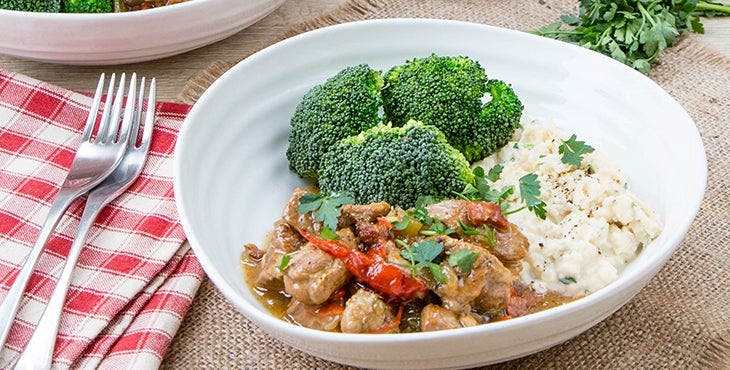

With the change in the seasons and the cooler weather it can be tempting to reach for convenient, and less healthy foods, often at the expense of your wallet! Read on for my top tips to avoid cold weather slip ups and save a few extra pounds.
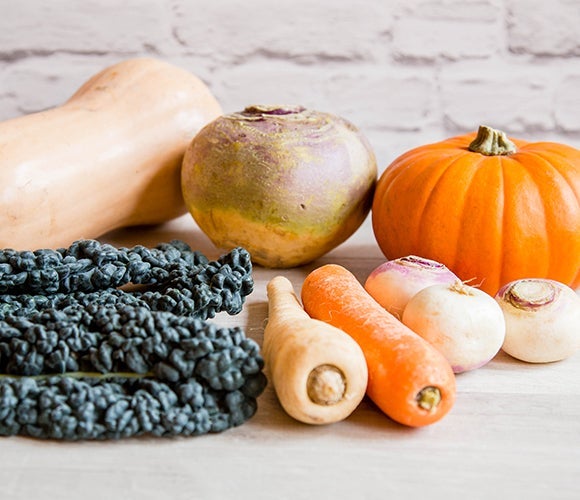 Concentrate on eating seasonal vegetables
Concentrate on eating seasonal vegetables
Seasonal veggies are far cheaper and so delicious. Root vegetables such as carrots, parsnips, swedes and turnips especially are adaptable, colourful and delicious. Roast or boil them, serve whole, mash and use to bulk out stews and casseroles and make soups. Treat autumnal pumpkins and squash in the same way as root vegetables. Dark leafy greens are full of nutrients, steam or lightly sauté and serve a large portion with every meal.
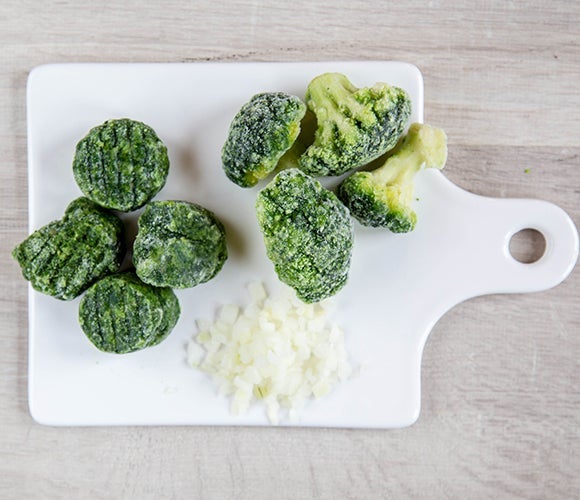 Frozen food rocks
Frozen food rocks
These days frozen food is high quality and often fresher than fresh. Modern blast freezing techniques preserve nutrients. Frozen vegetables go so much further than peas and corn – keep bags of cauliflower and broccoli florets in your freezer, they cook in minutes. For lazy cooks, frozen onion is a no waste must-have, simply pour the amount you need into a pan and sauté in a little oil from frozen, no more leftover half onions sitting in the fridge.
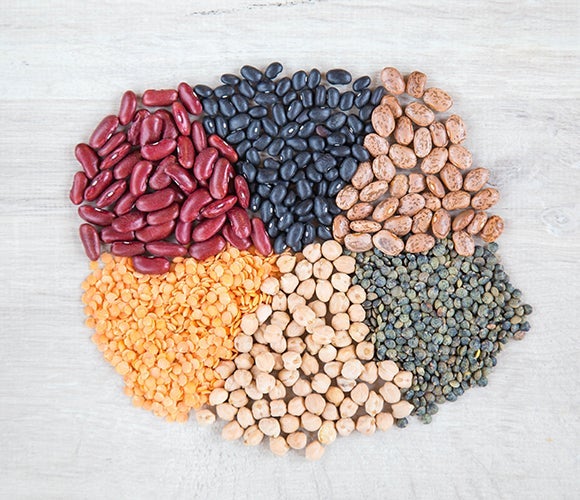 Build a collection of beans and pulses
Build a collection of beans and pulses
Beans and pulses are high in protein and fibre as well as being delicious and versatile. Both dried and canned are good value for money. Use them as the main ingredient in a dish or add a handful of quick cooking red or green lentils to bulk a dish out. Buy from the world food aisle of the supermarket where both canned and dried are generally cheaper. One easy way to speed up the cooking time of dried beans is to add a teaspoon of bicarbonate of soda, soak then cook in a slow cooker.
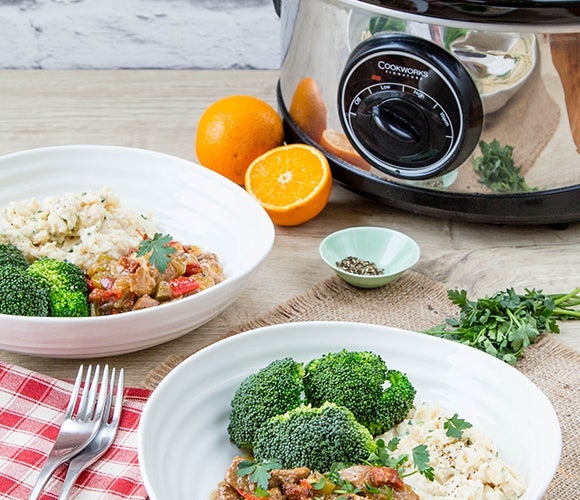 Slow cooked delights
Slow cooked delights
Slow cookers are both cheap to buy and cheap to run, and will transform the toughest budget cuts of meat into a melting tender stew of casserole, coming home to a perfectly cooked evening meal means there is no need or time to snack whilst preparing dinner. Use overnight for slow cooked porridge, or make delicious fat free soups.
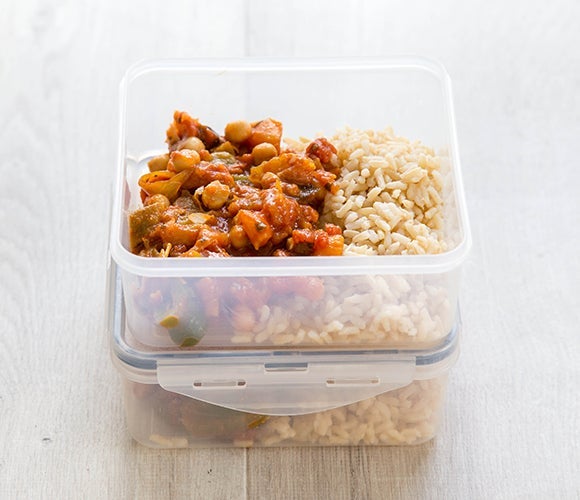 Packed lunches
Packed lunches
A healthy and hearty packed lunch sets you up for the afternoon and is far cheaper than buying lunch. Batch cook soups and casseroles packed with vegetables, pulses and lentils with herbs and spices for flavour. Take to work either frozen and microwave, or invest in a food flask which will pay for itself within a week.
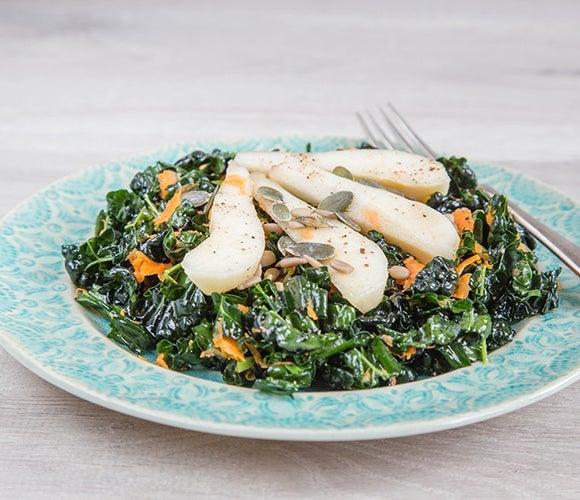 Salads are not just for summer
Salads are not just for summer
Winter vegetable salads are delicious, interesting, and filling – cheap seasonal veggies like carrots and leafy greens make a fantastic nutrient packed base. The trick is to chop or grate the vegetables small and to really massage the dressing in to soften them.
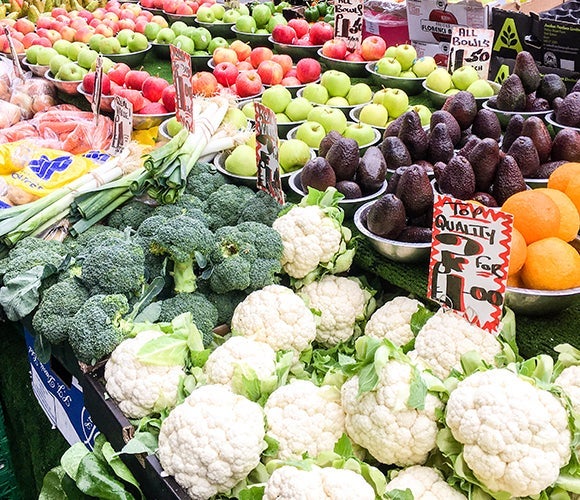 Buy in the market
Buy in the market
If you have a local fruit and vegetable market embrace it and stock up on the essentials there, or but the supermarket ugly range at a fraction of the price of the premium ranges.
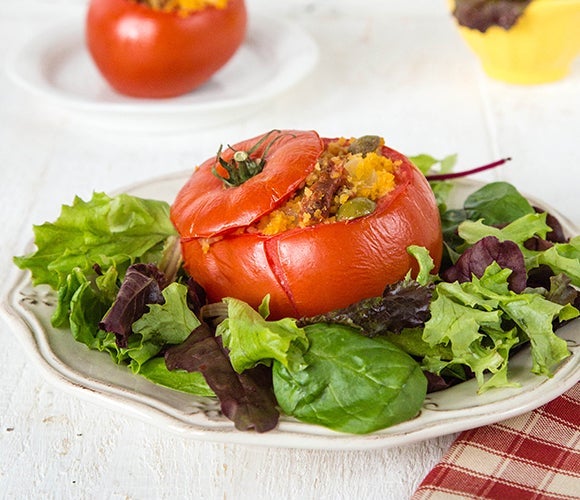 Eat less meat
Eat less meat
Going veggie for few meals a week will help you keep costs down. Vegetable protein sources are cheaper than meat, and generally better for you. Think of lentil and cauliflower curries, pasta with a rich tomato sauce or an intense harissa and chick pea stew.
 Make your own fakeaways
Make your own fakeaways
Most takeaway meals are easy to make at home at a fraction of the price with far fewer calories than their traditional counterparts. Make a curry with far less oil, use brown rice to accompany both Indian and Chinese dishes or top a pizza with vegetables and less of a more strongly flavoured cheese.
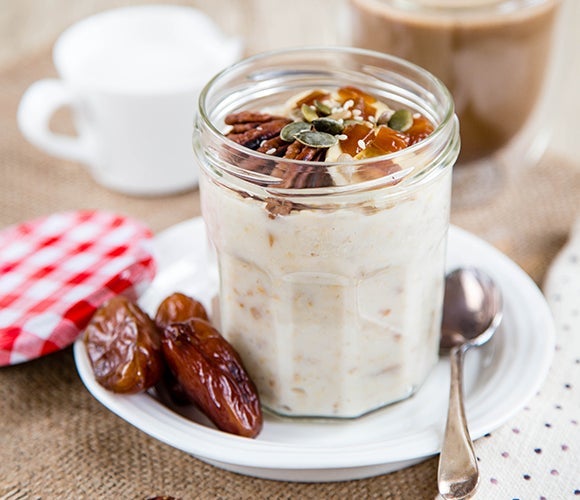 Have a good breakfast
Have a good breakfast
Breakfast is the most important meal of the day so never skip it. Start the day with porridge, oats a cheap, nutritious, and slow to release energy. I like to make overnight porridge in a jar in the slow cooker so I can just grab and go in the morning. Add a portion of fruit or vegetables (grated carrot, squash or pumpkin is delicious in porridge) to start the day with one of your 5 a day.
